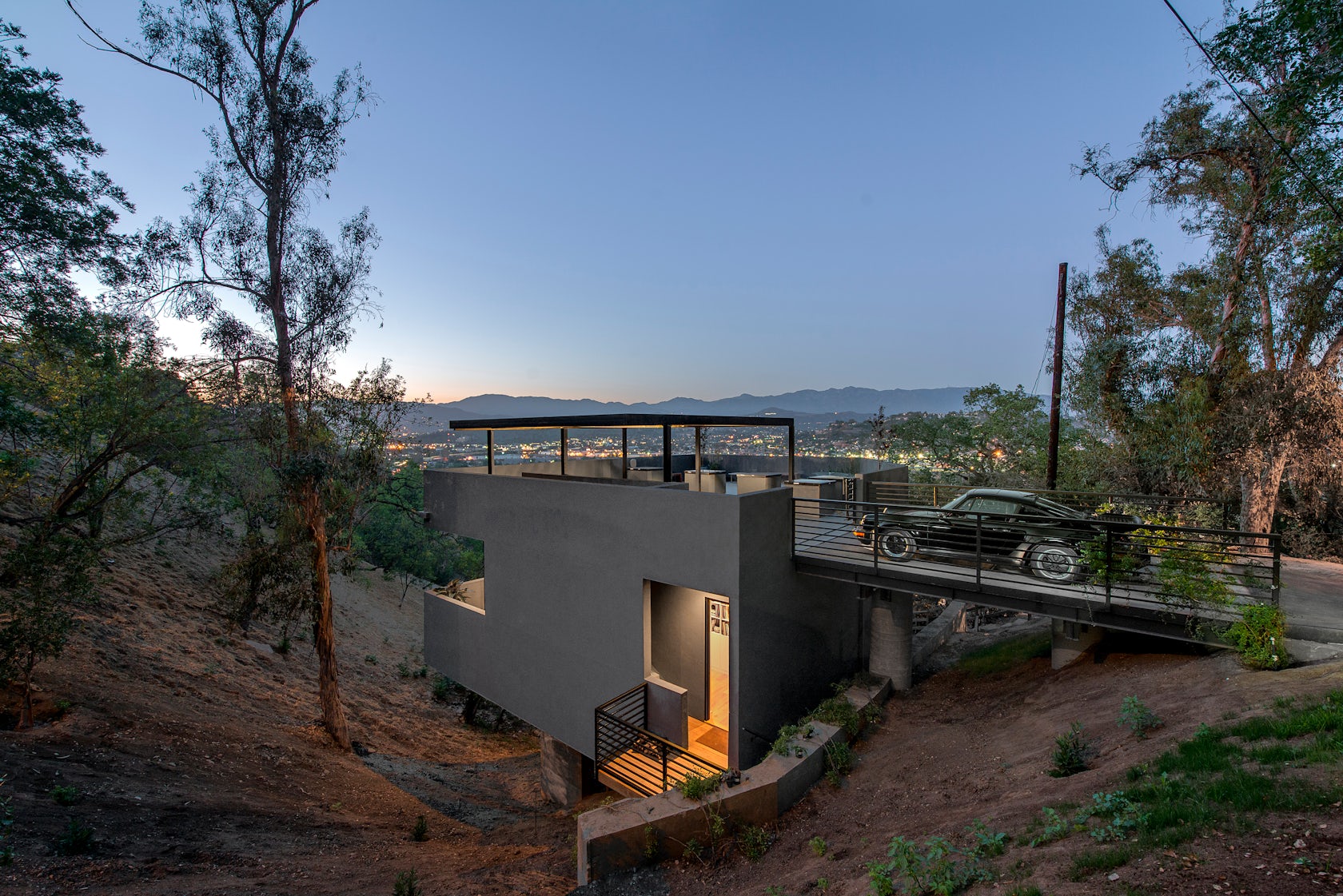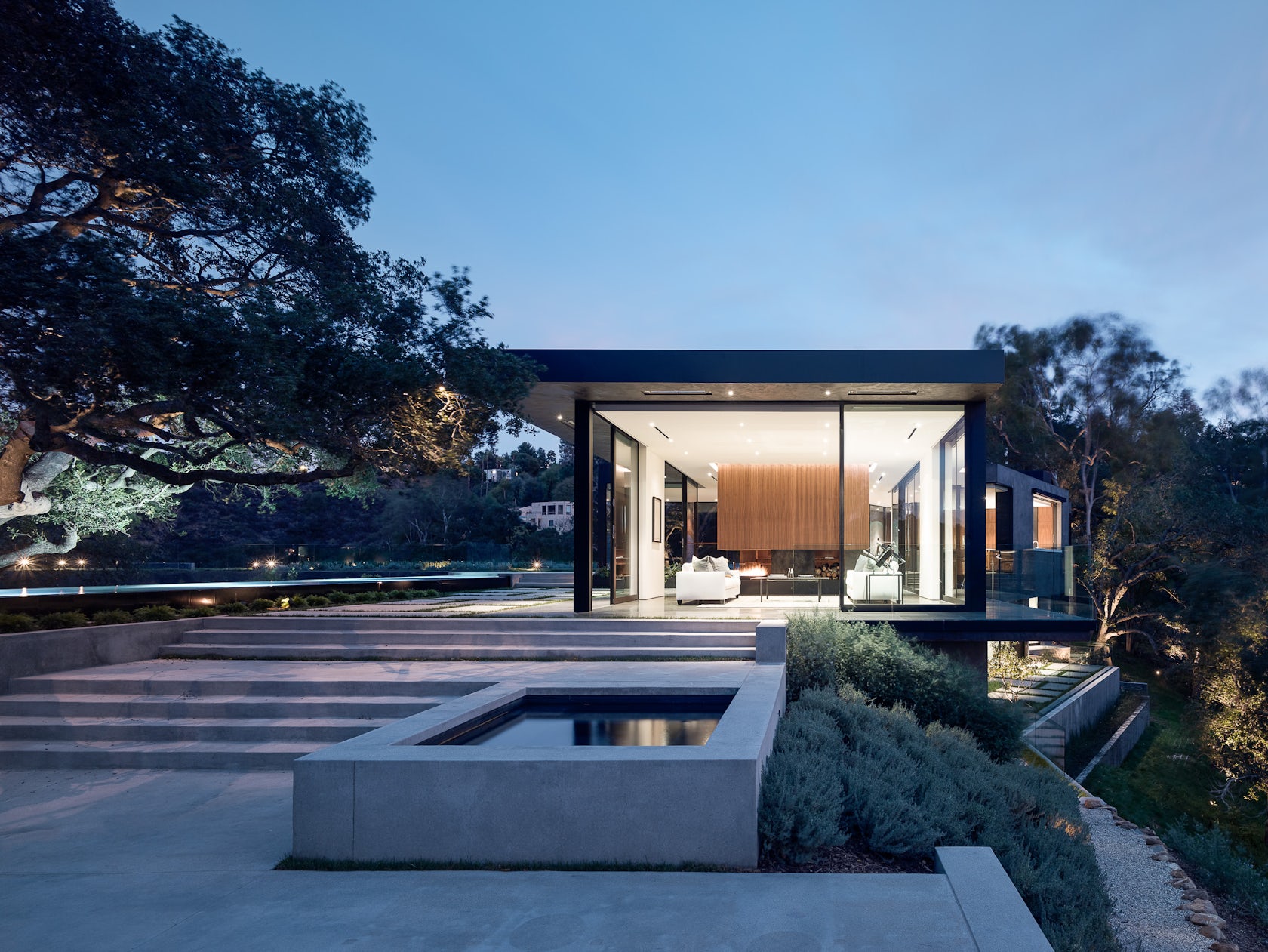Architects: Want to have your project featured? Showcase your work by uploading projects to Architizer and sign up for our inspirational newsletters.
Los Angeles profoundly shaped the modernist movement, but the City of Angels holds far more than its historic legacy. From Pierre Koenig’s iconic Stahl house to the Eames House and the transformation of the Los Angeles Basin, the city has continuously sought a new aesthetic, one where progressive forms and spatial multiplicity coexist. Reacting against old styles and outdated approaches, architects have constantly reimagined the city’s built environment through experimentation and reinterpretation.
While much has changed since the wide open spaces of the 1940’s, this sunny Californian testing ground is still home to new experiments, especially in the residential sector. Built to explore modern lifestyles and morphologies, these buildings encapsulate the city’s capacity for generating new ideas. The following collection examines a few of these private properties and how the design culture of Los Angeles is shaping its contemporary urban fabric.

© Anonymous Architects

© Anonymous Architects
Car Park House by Anonymous Architects
The Car Park House was designed as a floating structure on a steep slope that places the residence’s carport on the roof. Building off this inversion, the project also takes advantage of unobstructed views of the San Gabriel Mountains to the northeast of Los Angeles.

© Predock_Frane Architects

© Predock_Frane Architects
Venice House by Predock_Frane Architects
Predock Frane’s Venice House is sited in Venice Beach next to the area’s original network of canals. Designed as a reductive sculptural mass, the project embraces the soft California light while carefully modifying the existing 1940’s bungalow.

© Brooks + Scarpa Architects

© Brooks + Scarpa Architects
Yin-Yang House by Brooks + Scarpa Architects
Located in the Venice neighborhood, the Yin-Yang House was made as a net-zero energy, single-family home. Doubling as both a calm retreat and a social space for entertaining, the residence was organized around a series of courtyards and outdoor spaces.

© Joe Fletcher Photography

© Joe Fletcher Photography
Oak Pass Main House by Walker Workshop
Walker Workshop designed the Oak Pass Main House as an “upside down” program with public spaces above living quarters. Expertly integrated into the surrounding landscape, the elegant design was carefully built around a 75-foot swimming pool and large oak trees.

© Glen Irani Architects

© Glen Irani Architects
Hover House 3 by Glen Irani Architects
Sited on the Venice Canals of Los Angeles, this residential design focuses on maximizing outdoor living by ‘hovering.’ The design positions the building above the grade level to create outdoor spaces and was simultaneously formed as a simple, programmed box above the landscape.

© Aaron Neubert Architects

© Aaron Neubert Architects
Manifold House by Aaron Neubert Architects
Manifold House is located in L.A.’s Silver Lake neighborhood near the top of a hill overlooking Silver Lake Reservoir. Created as a series of tightly stacked spaces unfolding in the landscape, the project features a conjoined residence with a letterpress workshop and industrial design studio.

© Roger Davies

© Roger Davies
L.A. Villa ; Conceptual design by Oppenheim Architecture; Architect of record Rios Clementi Hale Studios
Oppenheim’s L.A. Villa is located in the exclusive neighborhood of Bel Air. Built as a three-story residence, the design was formed as sculptural masses and large cantilevers that open up to views of the Los Angeles skyline.

© Griffin Enright Architects

© Griffin Enright Architects
Santa Monica Canyon Residence by Griffin Enright Architects
The Santa Monica Canyon Residence was created as multiple loft-like spaces connected to a landscaped amphitheater. Inside, a meandering skylight connects living quarters with courtyards, the kitchen and dining spaces.

© Walker Workshop

© Walker Workshop
Oak Pass Guest by Walker Workshop
The Oak Pass Guest house was made with a small footprint to maximize surrounding views. Situated between oak trees, the project included the renovation of an existing barn into a large living space and concert venue area.

© Michael Maltzan Architecture

© Michael Maltzan Architecture

© Michael Maltzan Architecture
Pittman Dowell Residence by Michael Maltzan Architecture
Michael Maltzan’s Pittman Dowell Residence was created 15 miles north of L.A. near the Angeles National Forest. Resting atop a cleared level pad, the project was made to accommodate contemporary lifestyles while reflecting “an evolving attitude about the relationship between buildings and the landscape.” Conceptually, the design was made as a heptagonal form that was sliced and subdivided.
Architects: Want to have your project featured? Showcase your work by uploading projects to Architizer and sign up for our inspirational newsletters.




